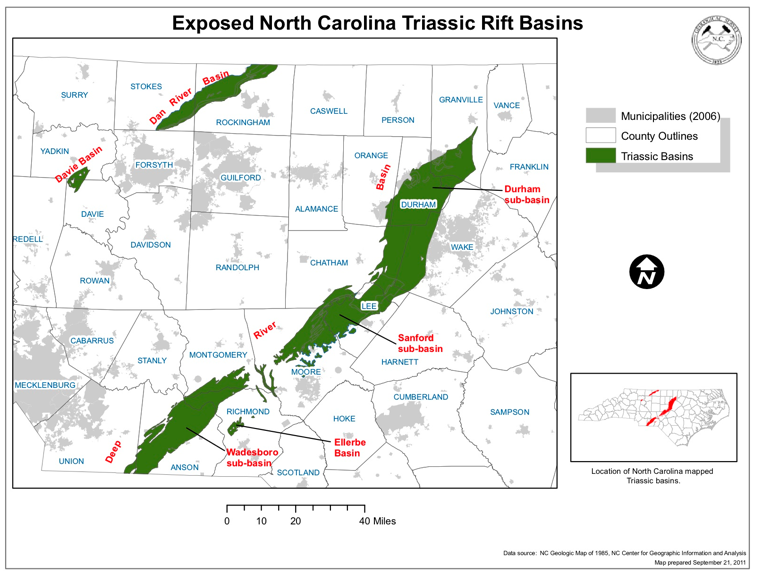Anti-fracking campaign launched in North Carolina as pressure grows for gas drilling

North Carolina environmental advocates launched a campaign this week against the controversial gas drilling method known as hydraulic fracturing or "fracking," which is still banned under state law.
The move comes the same week President Obama delivered a State of the Union address that called for increased drilling for natural gas. It also comes as the Republican-controlled N.C. legislature is pressing to allow gas development.
On Jan. 25, the North Carolina chapter of the Sierra Club unveiled "The Fracking Truth" campaign -- including a website called The Daily Frack -- to call critical attention to fracking, a method of drilling that uses chemicals and water to fracture shale rock formations and release natural gas.
"We launched The Daily Frack to help the citizens of North Carolina get a better understanding of what fracking might mean for our communities," said Molly Diggins, chapter director.
The website offers the latest news on fracking and invites people to share their own thoughts. The campaign also includes a Facebook page and a Twitter account.
While the gas industry insists fracking is safe, the practice has been linked to water contamination as well as human health problems.
Central North Carolina sits atop a shale formation that some experts have said could hold enough natural gas to power the state for 40 years. The state is currently studying the potential environmental, economic and social impacts of shale gas development and is scheduled to release its final report in May, with legislators expected to reconsider the ban soon after.
Last year the Republican-controlled N.C. General Assembly passed a bill called the Energy Jobs Act that would have pushed the state closer to fracking, but Democratic Gov. Beverly Perdue vetoed the measure. The Senate overrode the veto; while the House leadership has repeatedly promised an override, it has not yet brought up the matter for a vote.
That doesn't mean North Carolina lawmakers have given up, though: Just last week, a state Senate committee held a hearing on fracking that featured proponents of the practice, including a former industry consultant who advised working with the American Petroleum Institute to create model legislation.
But the push to open up domestic gas reserves is not coming only from Republicans, as President Obama made clear in his Jan. 24 address:
We have a supply of natural gas that can last America nearly 100 years. And my administration will take every possible action to safely develop this energy.
Obama also said he would require companies that drill for gas on public lands to disclose the chemicals they use. His pledge comes amid a growing push by states to require greater disclosure of fracking chemicals.
Starting Feb. 1, Texas will become the latest state to require drilling companies to disclose the volumes of chemicals and water they use in the fracking process. Well-by-well data will be published at an online public clearinghouse at FracFocus.org, which is managed by the Ground Water Protection Council and Interstate Oil and Gas Compact Commission. Other states that require data to be posted on FracFocus.org are Colorado, Montana, Louisiana and North Dakota.
Pennsylvania, which has been the center of a shale gas boom since 2008, requires companies to disclose fracking chemicals to the state Department of Environmental Protection. Arkansas and Wyoming also have fracking fluid disclosure rules.
Obama's call for greater disclosure of fracking chemicals was met with hostility from some of his political opponents. Rep. Darrell Issa (R-Calif.), chair of the House Government Oversight Committee, called the disclosure demand a "not-so-veiled threat" to force companies to reveal proprietary information:
"These are trade secrets," Representative Issa said. "He has a right to get a sample of the chemical they're putting down -- that's very different than making them disclose their secret ingredients. And I'm sure he drinks Diet Coke, I'm sure he’d like that recipe too -- but it's not his right."
Meanwhile, environmental advocates complained that Obama didn't go far enough to address concerns over fracking, with the Environmental Working Group charging the president -- who said natural gas development could support more than 600,000 jobs by the end of the decade -- with using the industry's inflated employment numbers.
The Environmental Protection Agency is currently studying fracking's potential impact on drinking water. It anticipates releasing an initial report this year, with an additional report to come in late 2014.
"This debate is going to be around for awhile," said Diggins. "I think it will be the biggest environmental debate of the year in North Carolina."
(Map of N.C. shale gas deposits from N.C. Department of Environment and Natural Resources.)
Tags
Sue Sturgis
Sue is the former editorial director of Facing South and the Institute for Southern Studies.
